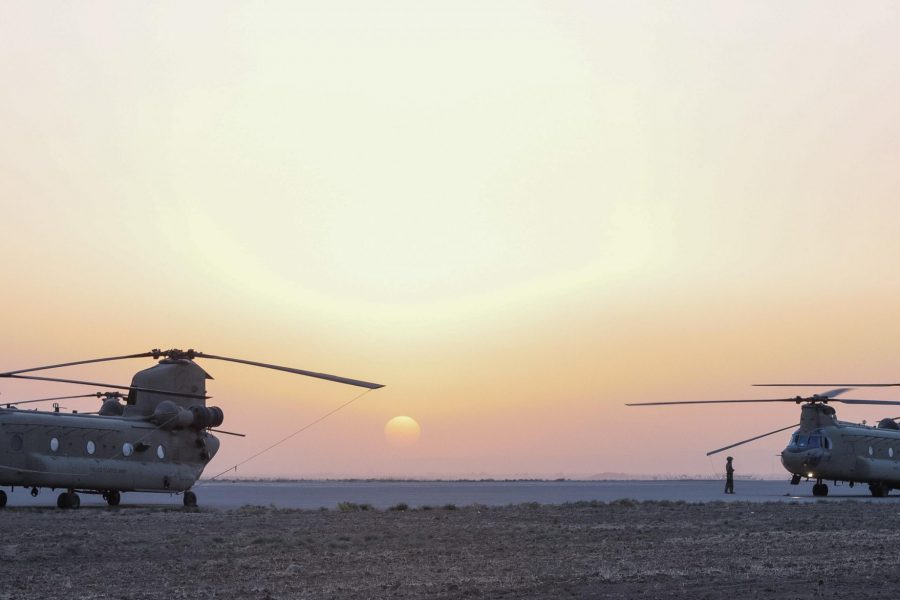U.S. officials are threatening a military response after a Feb. 15 rocket attack on a base housing Americans in Iraqi Kurdistan killed one person and injured nine others.
Late Feb. 15, about 14 107mm rockets were fired near Erbil, with three impacting the air base, according to Combined Joint Task Force-Operation Inherent Resolve. The rockets killed one non-American contractor and injured nine—eight civilian contractors and one U.S. service member. It’s not clear if any of the wounded civilians are American.
The base in the city of Erbil is one of the largest remaining U.S. outposts inside Iraq and a launching point for operations against the Islamic State group. In January 2020, Iranian ballistic missiles impacted the base, though the bulk of that attack targeted Al-Asad Air Base further south. Still, hundreds of personnel from both bases were later diagnosed with traumatic brain injuries from the attacks.
The Kurdistan Regional Government has launched an investigation into the most recent attack.
“We are outraged by today’s rocket attack in the Iraqi Kurdistan Region,” U.S. Secretary of State Antony Blinken said on Twitter. “I have reached out to Kurdistan Regional Government Prime Minister Masrour Barzani to discuss the incident and to pledge our support for all efforts to investigate and hold accountable those responsible.”
In a call with Iraqi Minister of Defense Jumaah Saadoon, Defense Secretary Lloyd J. Austin III condemned the attack, “and expressed condolences to the Iraqi people.”
“The Iraqi people deserve a secure and stable Iraq, and the United States remains committed to supporting our Iraqi partners in their efforts to defend Iraq’s sovereignty. Both leaders reaffirmed commitment to the strategic partnership between the United States and Iraq.”
In a Feb. 16 briefing, White House Press Secretary Jen Psaki also denounced the attack. “As always, the President of the United States and the administration reserves the right to respond in the time and the manner of our choosing, but we’ll wait for the attribution to be concluded first before we take any additional steps.”
A Shia militia group calling itself Awliyaa al-Dam, or Guardians of Blood, claimed responsibility, Al-Jazeera reported.
The incident mimics similar rocket attacks perpetrated by Iranian-backed militias in Iraq recently. This includes a March 2020 rocket attack on Camp Taji, which killed two Americans and one coalition service member and injured another 12. Shortly following the attack, U.S. forces launched retaliatory airstrikes on Kataib Hezbollah weapons storage facilities.
The same group in December 2019 launched a 107mm rocket attack on another U.S. location in Iraq, killing an American contractor. This incident was the catalyst for the U.S. drone strike the following month at Baghdad International Airport that killed Iranian Quds Force Leader Qassem Soleimani, which in turn prompted the Iranian ballistic missile strike that injured more than 100 American service members.
The Defense Department Office of Inspector General launched a review of U.S. Central Command’s ability to protect assets from missile and drone attacks following the January 2020 ballistic missile attack on Erbil and Al-Asad, but the COVID-19 pandemic forced the IG to call off its analysis.
